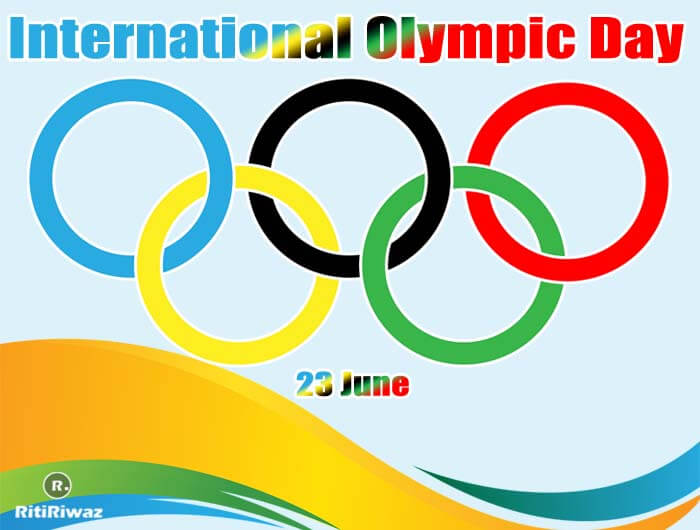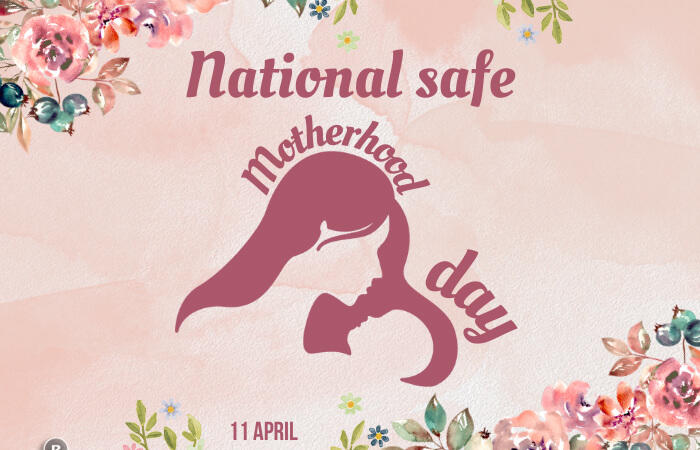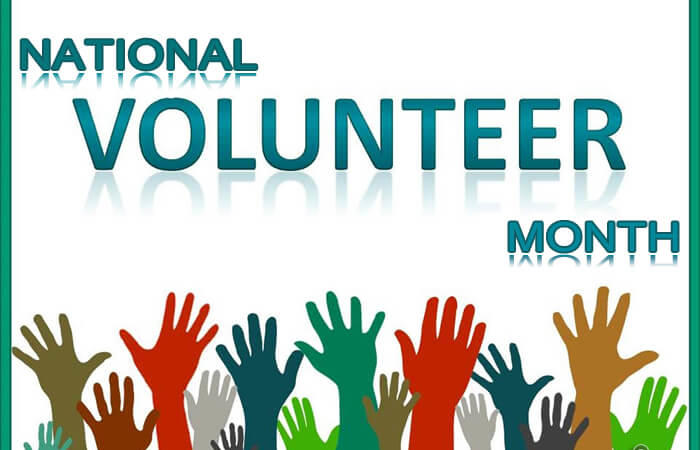International Olympic Day – June 23rd

International Olympic Day is celebrated on 23rd June to mark the birth of the Olympic Movement. On this day close to six million people across the globe, young and old alike, are reversing the trend away from the sport and are moving, jumping, stretching, and sweating to promote a healthy and active lifestyle, and celebrate the birth of the modern Olympic Games and its values.
According to the World Health Organisation (WHO) globally, one in four adults are not active enough and more than 80 percent of the world’s adolescent population is insufficiently physically active – refers today to the International Olympic Committee. The Olympics are most commonly associated with sporting excellence, but the history of the Games is also littered with moments of great cultural, political, and socio-economic significance.
It was in 1947 during the 41st Session of the International Olympic Committee in Stockholm, that Doctor Gruss, IOC member in Czechoslovakia, presented a report on a World Olympic Day celebration which would primarily be a day of promoting the Olympic ideal.
Some countries have incorporated the event into the school curriculum and, in recent years, many NOCs have added concerts and exhibitions to the celebration. Recent NOC activities have included meetings for children and young people with top athletes and Olympians and the development of new websites directing people to programs in their neighborhood. This makes it easier to reach a wider audience to take part in Olympic Day activities. The day teaches people about the values of excellence, respect, and friendship and how they can be applied on and off the field of play.
Olympic Values: Excellence, Respect, and Friendship
Striving for Excellence – Stands for giving our best, on the field of play or in the professional arena. It is not only about winning but also about participating, making progress towards personal goals, striving to be and to do our best in our daily lives, and benefiting from the healthy combination of a strong body, mind, and will.
Demonstrating Respect – This value incorporates respect for oneself, for one’s body, for others, for the rules and regulations, and for sport and the environment. Related to sport, respect stands for fair play and for the fight against doping and any unethical behavior.
Celebrating Friendship – This encourages us to consider sport as a tool for mutual understanding among individuals and people from around the world. Olympism inspire humanity to overcome political, economic, gender, racial and religious differences and forge friendships in spite of those differences
History of Olympics
The Greeks started the Olympic Games almost 3000 years ago in 776 BC in a scared valley at Olympia in Elis near the western coast of Greece. So important were these contests that time was measured by the four-year interval between the Games; the term”Olympiad” describing this period.
The religious festival in honor of Olympian Zeus had been observed in the sacred valley where the Greek Games were celebrated. Later these festivals became Pan-Hellenic. Four of these festivals, Olympian, Pythian, Nemean, and Isthmian, had attracted worldwide attention but the one held at Olympia was by far the most important consecrated to the Olympian Zeus. The Olympic Games became the greatest festival of a mighty nation. Once every four years trading was suspended, the continuously warring states and the fighting tribes laid down their arms, and people pay their tribute to the manhood of their nation.
For the first 13 Olympiads, the competition consisted of a single race of 200 yards, approximately the length of the stadium. The race was called the “Stade” from which our word “stadium” was derived. All male Greek citizens were entitled to participate in the ancient Olympic Games. Married women were not allowed to participate in, or to watch, the ancient Olympic Games while unmarried women could attend the competition. Women were first allowed to participate in 1900 at the second modern Olympic Games.
Usually, the Olympic Games began before the middle of the summer. Best athletes arrived from many Greek states to Olympia to compete in running, long jumps, throwing of discus and javelin, and wrestling. In the course of time fist fighting (boxing) and chariot races were also included in the Games. All athletes took an oath that they had been preparing well for the Games and promised to compete honestly and keep the rules of the sacred Olympics. The athletes took part in all kinds of competitions.
Winners were called “olympionics”, they were awarded olive wreaths and cups of olive oil. This tradition has survived. In our time sportsmen often get cups and wreaths for winning first place in sports competitions.
The Olympic Games had been held for about eleven hundred years, until the emperor Theodosius banned them for religious reasons in 394 A. D. The revival of the Olympic Games began a long time afterward, in 1892, when a young French teacher Pierre de Coubertin made a public speech before the Union of French sports clubs in Paris.
Initially, it was a one-day event until 684 BC, when they were extended to three days. In the 5th century B.C., the Games were extended again to cover five days. Because of World War I and World War II, there were no Olympic Games in 1916, 1940, or 1944.
In January 1948, the International Olympic Committee approved the idea of Olympic Day to commemorate the creation of the IOC on 23 June 1894 in Paris at the 42nd IOC Session in St Moritz, Switzerland. Olympic Day was held for the first time on 23 June with a total of 9 National Olympic Committees hosting ceremonies in their respective countries: Austria, Belgium, Canada, Great Britain, Greece, Portugal, Switzerland, Uruguay, and Venezuela.
Pierre de Coubertin – “father” of the modern Olympic Games – believed that sports events in general and international ones, in particular, were important tools for the promotion of human rights: sports should have the explicit function to encourage active peace, international understanding in a spirit of mutual respect between people from different origins, ideologies, and creeds.
Olympic Flag
The Olympic flag has 5 interlocking rings that represent 5 parts of the world: the Americas Africa Asia Australia Europe. The Olympic flag has a white background, with five interlaced rings in the center: blue, yellow, black, green, and red. This design is symbolic; it represents the five inhabited continents of the world, united by Olympism, while the six colors are those that appear on all the national flags of the world at the present time.
Olympic Motto
“Citius, Altius, Fortius” IDEALS: “The most important thing in the Olympic Games is not to win but to take part, just as the most important thing in life is not the triumph but the struggle. The essential thing is not to have conquered but to have fought well” Pierre de Coubertin.
Olympic Games Symbol
Olympic Flame Symbolized the death and rebirth of Greek heroes. There was no torch relay in the ancient Olympics. The Olympic Hymn first appeared at the first Olympic Games in 1896 in Athens, Greece. In the following years, every hosting nation commissioned to various musicians the composition of a specific Olympic hymn for their own edition of the games. The anthem by Samaras and Palamas was declared the official Olympic Anthem by the International Olympic Committee in 1958 at the 54th Session of the IOC in Tokyo, Japan.
Olympic Day is much more than just a sports event, it is a day for the world to get active, learn about Olympic values and discover new sports. Based on the three pillars move, learn, and discover, National Olympic Committees are organizing sports, cultural and educational activities throughout the world.
The Olympic Day Run
The Olympic Day Run can be considered as the core activity of Olympic Day and over the last 20 years, the run has been carried out all over the world. First launched in 1987, the run was about encouraging all National Olympic Committee (NOC) to celebrate the Olympic Day and now is also a manageable and cost-effective way to hold a mass participation event at the grassroots level nationwide. This year, because of the COVID-19 global lockdown and as all sports venues, schools, universities, and other workplaces were closed, the participants stay at home, and participate in the world’s largest 24-hour digital-first Olympics workout.
In the lead-up to Olympic Day, the Olympic Channel prepared a brand new home workout video made by Olympic athletes.
Suggested Read: Important Days In June






